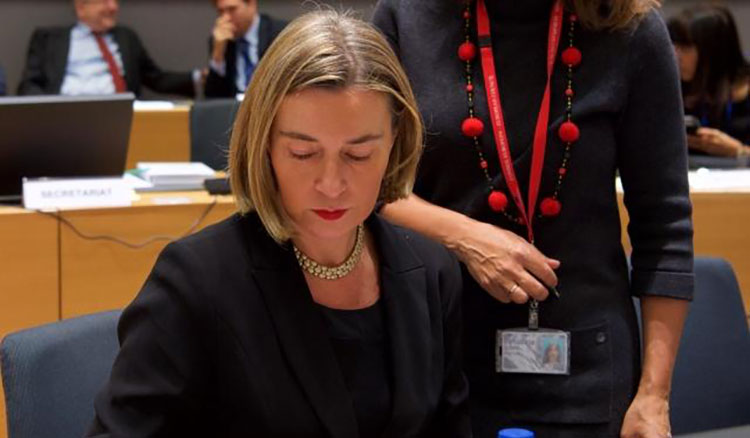On 11 December 2017, the Council of the EU took the decision to establish Permanent Structured Cooperation (PESCO) in the field of defence, less than a month after the High Representative, Federica Mogherini, and the Council received a joint notification by 23 Member States of their intention to trigger the provision of the Lisbon Treaty for cooperation in this area. In the meantime two further member states joined the initiative bringing the number of countries participating to 25.
Permanent Structured Cooperation in the area of security and defence policy foresees a number of EU member states working more closely together within a permanent and more binding framework. This will allow willing and able member states to jointly develop defence capabilities, invest in shared projects, and enhance the operational readiness and contribution of their armed forces.
The Council decision establishing PESCO sets out a number of key features: the list of participating member states, the list of ambitious and more binding common commitments undertaken by the participating member states, including “regularly increasing defence budgets in real terms in order to reach agreed objectives”, the PESCO governance provisions, with an overarching level maintaining the coherence and the ambition of the PESCO, complemented by specific governance procedures at projects level and administrative arrangements, including the secretariat functions for PESCO at project level and financing.
Member states participating in PESCO also adopted a declaration at the same time as the adoption of the decision establishing PESCO. The declaration welcomes the political agreement identifying an initial list of 17 projects to be undertaken under PESCO. The projects cover areas such as training, capability development and operational readiness in the field of defence. These initial projects are expected to be formally adopted by the Council in early 2018.
The 25 Member States participating in PESCO are Austria, Belgium, Bulgaria, Czech Republic, Croatia, Cyprus, Estonia, Finland, France, Germany, Greece, Hungary, Italy, Ireland, Latvia, Lithuania, Luxembourg, the Netherlands, Poland, Portugal, Romania, Slovenia, Slovakia, Spain and Sweden




